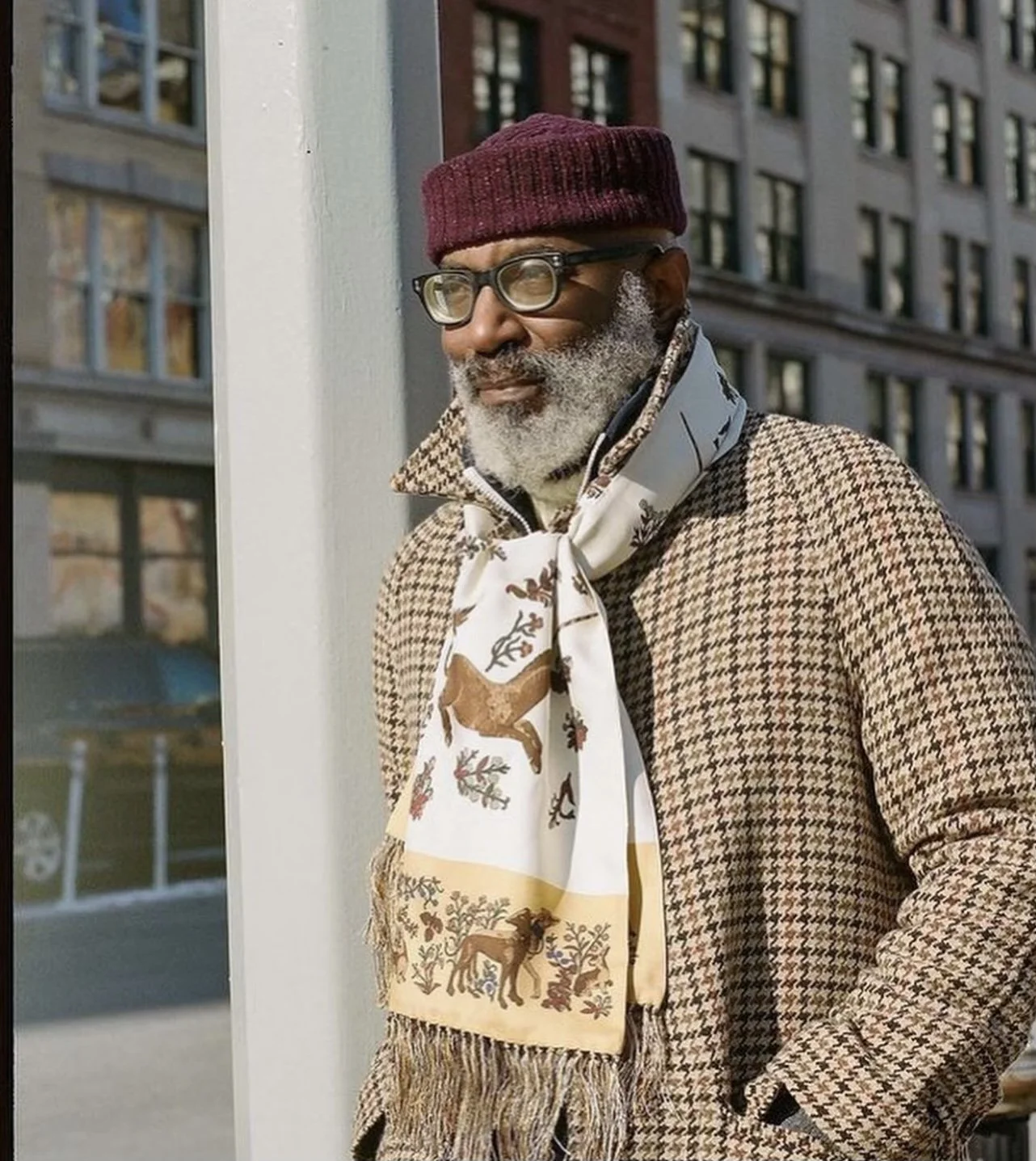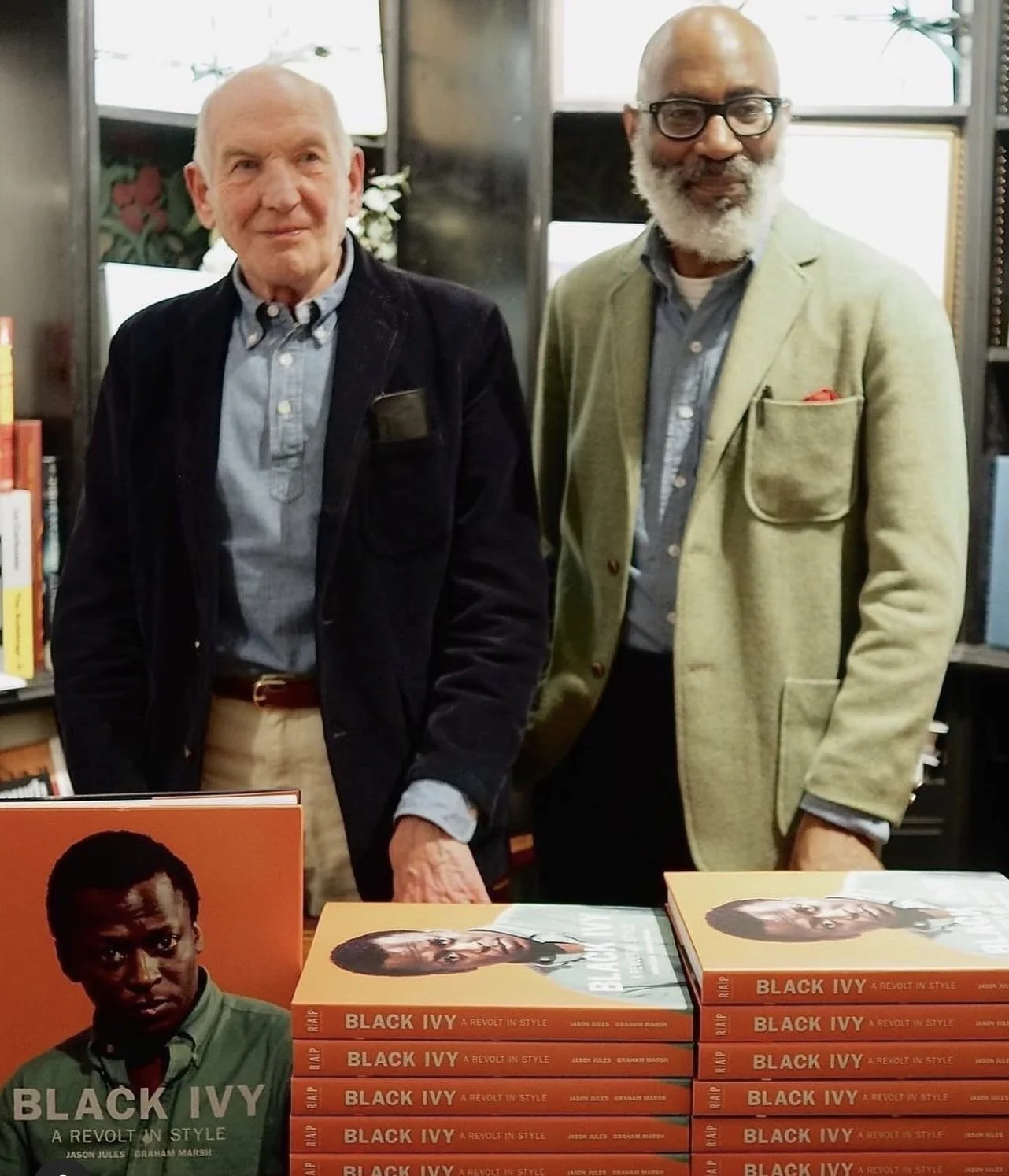JASON JULES- AUTHOR & MAN OF STYLE
I'm excited that I got to interview Jason Jules. I’ve admired his style for years and bought his book, ‘Black Ivy: A Revolt In Style.’ This was an honor for me, please enjoy!
©JASONJULES
Where does your inspiration for dressing so well come from? In this post-COVID world and the rise of athleisure, are there any adjustments you have made in your own personal style?
I like clothes, in much the same way I like art, design and other visuals. My interest in clothes was never really about dressing well - still isn’t. Rather it’s about feeling okay about myself and having the freedom to express my ideas through clothing no matter what anyone else thinks. It’s about having fun and deriving pleasure from something. I know, like everyone else I’m being seen and observed, challenging some of those observations to me is part of the fun. If others think I dress well, then that’s great too.
Black Ivy: a Revolt in Style has been a hit, what was your inspiration for the book? What other Black sartorial movements have you seen in the U.S. and the U.K. that have a similar impact like the Black Ivy style
The basic inspiration for the book was that I saw a chapter in the history of menswear that had been largely over looked and or misread. I wanted to set the record straight for future generations to know that wearing a suit and tie can be disruptive, and that going to college and studying can also be an act of rebellion. There are lots of other styles, what missing is the urge generally to look at them through a critical lens. Most fashion criticism is too enamored with fashion to actually be critical at all.
What was the hardest part of sourcing all of the material for your book? What are you top 4 favorite photographs that are in the book?
The hardest part of source the material? To be honest it wasn’t hard at all. It was a joy trawling through images and books and videos and audio material - deep diving into an era I’d always loved and had long been familiar with. The hardest part was knowing when to stop.
For any of the younger readers interested in classic menswear, what are some articles of clothing that people should start with to invoke the Black Ivy style?
I’d say rather than articles of clothing, it’s really about a kind of mindset. It’s about knowing that you are being seen and that you are being defined before you even open your mouth. It’s about knowing that the mainstream probably has a negative idea of what you’re about, but that how you define yourself and how you perceive yourself is what actually matters more than anything.
Since you are into classic menswear, do you ever shop vintage? If you do, what are some of the best vintage finds you have ever felt?
I’ve shopped vintage all my life. Initially because vintage stores were the only places I could get stuff I liked, but later because not only could I find unique pieces but also because as a young black kid I preferred going into stores where I was less likely to be followed by a paranoid member of staff or one of the stores security guards the moment I walked in. Vintage stores sold the stuff I liked, and the people who worked in them tended to be pretty interesting too.
I’m just going through my archive for a shoot I’m doing tomorrow, I’m rediscovering lots a great stuff - a pair of white Big E stay press jeans, I great plaid Woolrich mackinaw coat, a pair of 1940s US made work boots that I got in Florence, still in their original box, some beautiful silk repp ties…Vintage shopping is a really pleasure for me, it’s one thing I really missed during the pandemic lockdowns and restrictions.
With these past several years in the U.S. being some of the most volatile in modern millennial history politically, do you think there is a place for Black Ivy style in modern America?
I think Black Ivy style and mindset is one if the reasons for that volatility. That young black people are refusing to be defined by age old, racist prejudices is I think triggering a lot of fear among establishment stakeholders. The fear increased and the activity seemed to intensify when Obama became president and it’s been relentless ever since - from the Birtha movement to the Tea Party to today.
As a man of color, I was always taught that how I am perceived and how presentable I am is incredibly important. With these casual times, do you think it has affected the dynamics of what it is to be a presentable man of color?
What I’ve learnt over the years - and what I’m still leaning - is that the only person I need to be presentable to is myself. Don’t get me wrong, there were times growing up, trying to fit in with other people and or scenes that I dressed and behaved like I thought I was expected to, but it’s hard to live up to the expectations of others especially when you’re not totally clear on what those expectations are. Often in the mainstream, given racial bias, institutional racism etc, seeking acceptance from certain groups can be to your own detriment. If people can’t accept you as your are - perhaps it’s not your fault - it maybe because they’re not trying hard enough, or simply don’t want to.
What other projects or things do you have in the works?
Along with various projects relating to Black Ivy, I’m working with a couple of art galleries and museums helping curate fashion based exhibitions. I’m also working with some emerging menswear brands helping them develop their brand identity, product and communications - they’re part of a coaching program I’ve developed and it’s something I really love doing.



